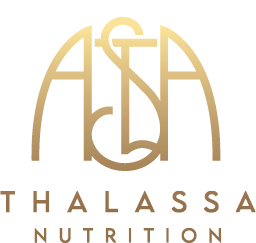Hair loss ……
These Simple Lifestyle Hacks Will Help If You Suffer From Hair Loss,
Adrenal sufficiency and adrenal fatigue are more widespread than you might think. With the fast-paced world we live in, constantly bombarded by stress from all avenues of life (whether that be driving in traffic, reading and/or watching and/or listening to the news, eating foods that don’t serve our highest good, or emotional crises (your own or others)), our adrenal glands never really get a break.
The adrenal glands lay on top of your kidneys, and not surprisingly, are also critical for healthy kidney function and the production of hormones. The adrenal glands produce neurotransmitters that receive input from the brain, and they release hormones so that we react accordingly (1). These hormones include things like adrenaline and norepinephrine to activate our fight and flight responses, and dopamine, which regulates emotional responses and body movement.
The adrenal glands also produce sex and steroid hormones, which regulate the sleep cycle and blood pressure. They’re also involved in the metabolism of food into useable energy.
Adrenal Fatigue
Many individuals, without knowing it, experience adrenal fatigue. As mentioned above, we are constantly bombarded by situations in “fast-paced living,” which release hormones unbeknownst to our approval. This creates an environment where our adrenal glands cannot adequately meet the demands of physical, emotional, or psychological stress.
Signs of adrenal fatigue include (2):
– Multiple allergies
– Anxiety
– Blurry vision
– Body aches or chronic muscle pain
– Brain fog and memory loss
– Extreme fatigue
– Cold hands and feet
– Depression
– Dizziness
– Chronic dry skin and/or brittle nails
– Hair loss
– Heart palpitations
– Hypoglycemia
– Irritability
– Lethargy
– Low blood pressure
– Low sex drive
– Muscle weakness
– Salt and/or sugar cravings
– Poor sleep/mid-afternoon sleepiness
– Thyroid problems
– Tinnitus
– Uterine fibroids
– Unexplained weight loss or gain
Adrenal fatigue comes about in four stages, which, by the fourth stage, can turn into full-blown adrenal insufficiency. These stages are as follows (3):
1. Beginning – “Alarm” Phase
The body’s immediate reaction to a stressor. Can be an imminent physical threat, or something as simple as a job interview or hospital stay. The body is still capable of making the proper amount of hormones so that you can respond appropriately. Sleep patterns may begin to suffer, and you may feel intermittent tiredness. Many of us go in and out of Stage One multiple times throughout our lives.
2. Continuing – “Alarm” Phase
The stressor doesn’t quickly go away and your body must remain in an elevated state to meet the challenge. Stress-related hormones increase, while sex and sleep hormones drop. A common feeling is that of being “wired but tired.” This is usually where adrenal fatigue begins, and individuals start to develop an unhealthy dependence on coffee.
3. “Resistance” Phase
In this phase, your endocrine system focuses on producing stress hormones at the expense of sex hormones. There will be drops in hormones like DHEA and testosterone. You can still function normally but you feel symptoms of exhaustion. Lethargy and an impaired immune response leave you catching every bug that’s going around. This phase can last months to years.
4. “Burnout” Phase
By this phase, the body runs out of ways to manufacture stress hormones, and cortisol levels finally begin to drop. Now, sex hormones and stress hormones are low, and the levels of neurotransmitters are also low. This is called “burnout,” and it happens when we finally crash after long periods of coping with stress. The result is extreme tiredness, low sex drive, irritability, depression, anxiety, weight loss, apathy, and disinterest in the world. To recover from Stage Four, you need patience, and often a complete change in lifestyle.
What Is Adrenal Insufficiency
Adrenal insufficiency happens when the adrenal glands are no longer producing enough of the hormone cortisol, and in some cases, the hormone aldosterone (4). The symptoms of adrenal insufficiency occur over several months, and can feel like adrenal fatigue in the beginning. One might experience darkening of the skin, salt cravings, weight loss or decreased appetite, low blood pressure, low blood sugar, nausea, diarrhea or vomiting, abdominal pain, muscle or joint pain, irritability and depression.
The primary causes of adrenal insufficiency are as follows:
– Chronic emotional stress
– Addison’s disease
– Poor diet – lack of certain vitamins and minerals like vitamin B complex, vitamin D, and magnesium
– Disease in the form of asthma, diabetes, inflammatory-related conditions, autoimmune disorders, and any chronic illness that put stress on the adrenal glands
– Lack of sleep
– Toxicity caused by environmental pollutants
– Emotional or physical trauma
– Adrenal gland disorders (genetics, chronic infections, larger endocrine system imbalance, tumours, and some pharmaceuticals can all affect how our adrenals function)
How To Heal Adrenal Insufficiency
1. Sleep
Too many people don’t get enough sleep. Their sleeping patterns are disrupted, which can make them feel even more tired. Making sure you get 8-9 hours of sleep every night will heal your body, including your adrenal glands. Avoid bright lights at least 1-2 hours before bed, and relax by reading a book or drinking a cup of chamomile tea.
2. Avoid Caffeine
Caffeine is one of the worst offenders for burning out the adrenal glands. Each time you drink a cup of coffee, neurons send messages to your pituitary gland, which in turn alerts your adrenals to pump out adrenaline and cortisol (5). Cortisol is the chemical that is released when our body goes into fight or flight mode. It is the stress chemical, and stress is exactly what the adrenals do not want.
3. Eliminate Alcohol
If your body is already displaying signs of adrenal dysfunction, drop the alcohol. It stresses the liver, kidneys, and adrenals, and can also affect your sleep. Plus, alcohol affects hormone production and neurotransmission (6).
4. Quit Refined Sugars
When you consume anything that is high in refined sugars, it stresses the body. The overloaded energy response as a result of eating too much sugar elevates cortisol and blood sugar. This results in insulin levels that go into overdrive, and resulting health implications like diabetes and adrenal fatigue.
5. Ditch The Microwave Oven
Microwaves create free radicals in food, which immediately deems the food toxic to consume. Once the food particles are molecularly altered, the food becomes foreign to the body, and it causes more stress on the body to process and eliminate (resulting in more stress on your adrenal glands – and other organs).
6. Get Rid Of Hydrogenated Oils
Hydrogenated vegetable oils are harmful in the sense that once heated, they release aldehyde (a known neurotoxin). They’re also too high in omega-6 fatty acids, too much that when you don’t balance with enough omega-3’s, your body goes into inflammatory-mode. Avoid canola, corn, safflower, sunflower and soy-based hydrogenated oils. Instead, opt for healthy fats like coconut, avocado, sesame and olive oils.
7. Start Taking Herbs
Herbs are incredibly useful if you’re suffering from any form of adrenal fatigue or adrenal insufficiency. Ashwagandha is an adaptogenic herb, meaning that it helps balance our body in whatever way it needs. This herb is great for helping us respond to stress and balance hormones and blood sugar levels (7). Holy basil is also wonderful for reducing cortisol levels and regulating plasma corticosterone, which promotes balance to the adrenal glands. It helps protect your hypothalamus, pituitary gland, and adrenals (8).
Healthy fats like chia seeds, flax seeds, avocado, coconut, and hemp seeds also provide our bodies with healthy fatty acids that protect the nervous system and balance hormones.
Magnesium is also important to take, especially in supplement form, seeing as how most of our foods are depleted in this mineral due to poor soil quality. Magnesium is the “relaxation mineral” and reduces the production of cortisol, and is also involved in hundreds of different biochemical reactions in the body necessary from proper human function.
8. Drink More Water
Dehydration can give people with adrenal insufficiency many problems. Without enough water, the body cannot function as it is supposed to. The adrenal glands are responsible for secreting a number of different hormones, which have a direct effect on your energy levels. One of these hormones is aldosterone, which regulates water levels and the concentrations of minerals (like sodium) in your body (9). Aim for drinking 2-3 litres of water a day.
9. Practice Meditation or Yoga
Yoga, meditation and mindfulness breathing are all great ways to calm the body and get rid of excess stress. They bring the body back to baseline, where you can function in a more “chill” state. Doing these forms of meditation balance brain chemistry, which in turn, sends messages to your adrenals to calm down.
Hormone Balancing Recipes
These hormone balancing recipes are loaded with healthy fats, superfoods and fibre – all things you need to help balance your hormones.
Hormone Balancing Smoothie:
Ingredients: (serves 1)
– 2 ripe bananas
– 2 cups water or coconut water
– 2 tsp. chia seeds
– 1 tsp. spirulina
– 1 tsp. maca powder
– 1 tsp. coconut oil
– 1 tbsp. hemp seeds
Method:
Blend all of the above ingredients together and drink relatively soon to make sure it doesn’t oxidize.
Hormone Balancing Granola:
Ingredients:
– 2 cups sprouted and dehydrated buckwheat*
– 2/3 cup brazil nuts (soaked for 8 hours)
– 1/3 cup pumpkin seeds (soaked for 8 hours)
– 1/4 cup hemp seeds
– 2 tablespoons chia seeds
– 1/3 cup ground flaxseeds
– 1/4 cup coconut flakes, unsweetened
– 1/3 cup raisins
– 1/4 cup melted coconut oil
– 4 tbsp. maple syrup or raw honey
– 1 tsp. honey
– 1 tsp. vanilla extract
– 2 tsp. cinnamon
Method:
1. Chop Brazil nuts and pumpkin seeds in a food processor or by hand.
2. Mix in a bowl with the seeds and coconut flakes. Next add the coconut oil, maple syrup or honey, vanilla extract and cinnamon.
3. Mix together until everything is well boated, and place granola in a single layer on a dehydrator sheet or a baking sheet lined with parchment paper.
4. Dehydrate the granola until dried (10-15 hours), at 115ºF, or bake in the oven for 30 minutes at the lowest temperature.
*for the sprouted and dehydrated buckwheat, soak and sprout buckwheat for 1-2 days. Dehydrate to make dry again, or if you don’t have a dehydrator put on a cookie sheet and put in the oven at the lowest temperature for 5-10 minutes until dry.

 no
no no
no no
no
Leave a Reply
Want to join the discussion?Feel free to contribute!